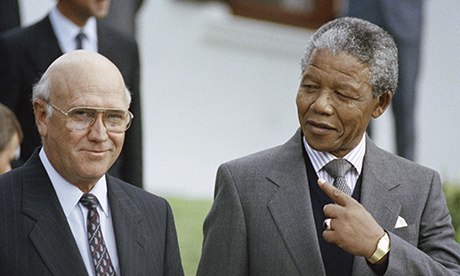Thursday, December 19, 2013
india's 1% demands respect and indian peasants stuck in their shoe-treads protest indignities ...,
By
CNu
at
December 19, 2013
0
comments
![]()
Labels: global system of 1% supremacy , Peak Capitalism , relationship management , status-seeking
Wednesday, December 18, 2013
us-india row ignores short-changed domestic worker...,
By
CNu
at
December 18, 2013
2
comments
![]()
Labels: hustle-hard , institutional deconstruction , lifestyle
india, women's rights, and wages - all in one lying hypocritical package...,
By
CNu
at
December 18, 2013
0
comments
![]()
Labels: cultural darwinism , global system of 1% supremacy , The Hardline , truth
an awkward silence...,
By
CNu
at
December 18, 2013
0
comments
![]()
Labels: elite , establishment , presstitution , propaganda
whose sarin?
By
CNu
at
December 18, 2013
0
comments
![]()
Tuesday, December 17, 2013
the lion of gujarat keeps his powder dry on teh gey...,
By
CNu
at
December 17, 2013
10
comments
![]()
Labels: theoconservatism , What IT DO Shawty...
ashy medieval help getting out of pocket...,
It has removed security from around the U.S. Embassy in the leafy Chanakyapuri district of New Delhi. India has also reportedly asked for the visa and bank account details of all teachers working at U.S. schools in the country to determine whether they’re paying tax or not.
By
CNu
at
December 17, 2013
2
comments
![]()
Labels: peasants , play-at-your-level
brahmina's $3.00/hr illegally smuggled peasant nanny forgotten in the infuriated 1% dust-up
By
CNu
at
December 17, 2013
0
comments
![]()
Labels: Ass Clownery , global system of 1% supremacy , not a good look , peasants
never say anything suddenly got a whole lot to say
By
CNu
at
December 17, 2013
8
comments
![]()
Labels: Ass Clownery , not a good look , presstitution , you used to be the man
your tax dollars at work...,
By
CNu
at
December 17, 2013
0
comments
![]()
Labels: Ass Clownery , you used to be the man
in math and science, the best fend for themselves...,
By
CNu
at
December 17, 2013
0
comments
![]()
Labels: edumackation , play-at-your-level
no math gene
By
CNu
at
December 17, 2013
0
comments
![]()
Labels: edumackation , play-at-your-level
Monday, December 16, 2013
one of WW-II's darkest secrets...,
"Our unit did things no human being should ever do," confesses Unit 731 member Yoshio Shinozuka. His unit developed the deadly pathogens which were used to infect 250,000 Chinese. Japan's refusal to apologise for its actions, or to acknowledge Unit 731's existence, has further upset its victims.
A film by ABC Australia - Ref. 1654
By
CNu
at
December 16, 2013
17
comments
![]()
Labels: cull-tech , eugenics , History's Mysteries , Living Memory , WW-III
"scientific" racism on the ropes among educated highschoolers...,
By
CNu
at
December 16, 2013
0
comments
![]()
Labels: cultural darwinism , edumackation , paradigm
why are bacteria different from eukaryotes?
By
CNu
at
December 16, 2013
0
comments
![]()
Sunday, December 15, 2013
anyone misunderstanding the genesis of the Evengelii Gaudium simply hasn't been paying attention...,
By
CNu
at
December 15, 2013
17
comments
![]()
Labels: Collapse Casualties , Collapse Crime , Living Memory , Peak Capitalism , What Now?
FAR more impressed with Pope Francis than I am with myself....,
By
CNu
at
December 15, 2013
18
comments
![]()
Labels: History's Mysteries , People Centric Leadership , The Hardline
Saturday, December 14, 2013
Why A Middle-Aged White Man Allegedly Decided He Was Going To Bomb A Kansas Airport
By
CNu
at
December 14, 2013
0
comments
![]()
Labels: Livestock Management , status-seeking , the wattles
when knowledge, love, and work are stunted and frustrated....,
 |
Hermes Press Review of Listen Little Man |
By
CNu
at
December 14, 2013
0
comments
![]()
the modern default configuration when isht gets real....,
By
CNu
at
December 14, 2013
0
comments
![]()
Labels: egregores , killer-ape , neofeudalism
the longterm unemployed are doomed
By
CNu
at
December 14, 2013
0
comments
![]()
Labels: Collapse Casualties , What Now?
Friday, December 13, 2013
a hero to THEM = a villain to US
Once in power, Pilger explained, the ANC's official policy to end the impoverishment of most South Africans was abandoned, with one of his ministers boasting that the ANC's politics were Thatcherite:
By
CNu
at
December 13, 2013
4
comments
![]()
Labels: egregores , global system of 1% supremacy , you used to be the man
welcome to the memory hole...,
By
CNu
at
December 13, 2013
0
comments
![]()
Labels: agenda , count zero , elite , establishment , hegemony , information anarchy
Thursday, December 12, 2013
the banality of "goodness"
By
CNu
at
December 12, 2013
3
comments
![]()
Labels: Living Memory , presstitution , propaganda
Chipocalypse Now - I Love The Smell Of Deportations In The Morning
sky | Donald Trump has signalled his intention to send troops to Chicago to ramp up the deportation of illegal immigrants - by posting a...

-
theatlantic | The Ku Klux Klan, Ronald Reagan, and, for most of its history, the NRA all worked to control guns. The Founding Fathers...
-
NYTimes | The United States attorney in Manhattan is merging the two units in his office that prosecute terrorism and international narcot...
-
Wired Magazine sez - Biologists on the Verge of Creating New Form of Life ; What most researchers agree on is that the very first functionin...

















